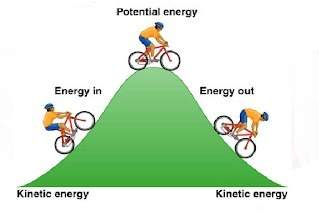
Physics, 14.12.2019 03:31 brisamauro27
James joule (after whom the unit of energy is named) claimed that the water at the bottom of niagara falls should be warmer than the water at the top, 51 m above the bottom. he reasoned that the falling water would transform its gravitational potential energy at the top into thermal energy at the bottom, where turbulence brings the water almost to a halt.. if this transformation is the only process occurring, how much warmer will the water at the bottom be? the specific heat of water is 4190 j/(kg? k).

Answers: 3
Another question on Physics

Physics, 22.06.2019 05:20
Suppose an objects initial velocity is 10m/s and it’s final velocity is 4 m/s. mass is constant. what can best be concluded about the object based in the work-energy theorem
Answers: 2

Physics, 22.06.2019 08:00
Tafari worked one summer on a ship that set weather buoys in the ocean. he watched how one of the buoys moved in the water. describe which parts of the wave would cause the buoy to bob up and down. which wave property determined how fast the buoys bobbed in the water? he observed that when the wind blew harder, the ocean waves were larger, and the buoys moved away from the ship. what effect, if any, did the waves have on how far the buoys moved? explain your answer.
Answers: 3


Physics, 22.06.2019 14:00
Ascientific blank must be testable and capable of being proven false?
Answers: 1
You know the right answer?
James joule (after whom the unit of energy is named) claimed that the water at the bottom of niagara...
Questions

Mathematics, 11.12.2021 22:40


Mathematics, 11.12.2021 22:50

Mathematics, 11.12.2021 22:50


Geography, 11.12.2021 22:50

Mathematics, 11.12.2021 22:50


Mathematics, 11.12.2021 22:50

Mathematics, 11.12.2021 22:50



Biology, 11.12.2021 22:50


Mathematics, 11.12.2021 22:50

Computers and Technology, 11.12.2021 22:50

Mathematics, 11.12.2021 22:50



Mathematics, 11.12.2021 22:50




